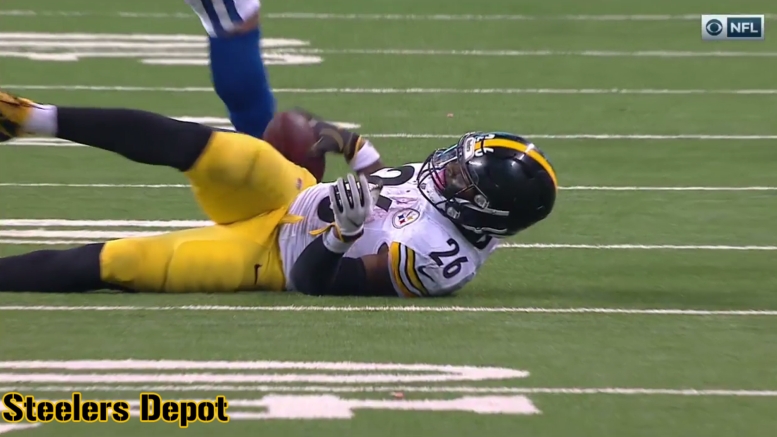Last Sunday, running back Le’Veon Bell touched the ball 31 times, which had been roughly par for the course relative to the workload that he was getting during the final three games leading into the bye week.
Playing on a short week, he only had 21 touches against the Titans, and a full nine of them were receptions, which tend to be less of a physical detriment than running plays. Still, that is 52 touches over the course of four days, including 38 rushing attempts and 14 receptions.
And what does he have to show for that, exactly? 126 rushing yards combined, averaging just 3.3 yards per carry, without a score, though he did have one taken away after he was ruled down just short of the goal line on Thursday against the Titans. He also has 89 receiving yards on his 14 receptions, averaging about 6.4 yards per reception.
These are not exactly the All-Pro numbers that we have come to expect from him over the years, though they have been somewhat par for the course this season. On the year, he has 232 total carries for 886 yards. While that is the highest total in the league, it is also quite inefficient.
Bell is averaging only 3.8 yards per carry on the season, and is the only back in the top eight in yardage to dip below four yards per carry. Only six of the top 20, nine of the top 30, and 18 of the top 50 running backs this season in terms of rushing yards are averaging fewer than four yards per carry.
Even though he has by far the most rushing attempts in the league—the next-closest is Jordan Howard at 192—his five rushing touchdowns is still only fifth-most, and a staggering 29 players have registered more explosive rushing plays than his two. The 19 other running backs with two explosive plays all have fewer carries, of course.
He is also not one of the 35 players this season to have at least one carry of 40 or more yards. His longest run on the season is just 27, while 57 players have recorded a run longer than that on the year. Not that this is a particularly stunning statistic.
But the most disturbing statistic, to me, is this: a full 41 of his carries this season have gone for no yardage or lost yardage. In fact, the majority of those—23—lost yardage. That means almost 18 percent of his carries gained nothing, and 10 percent lost yardage.
Is that bad? For Le’Veon Bell, yes. Last season, on 261 carries, he only had 34 carries gain no yardage, which is 13 percent. Only 13 carries lost yardage, or about five percent. These are huge and concerning increases.
About 140 of his 232 carries this season have been unsuccessful runs. His success rate of below 40 percent is worse than last year, when he had almost exactly the same number of unsuccessful plays—though fewer plays that gained no yards—on more carries, with a success rate of about 47.








